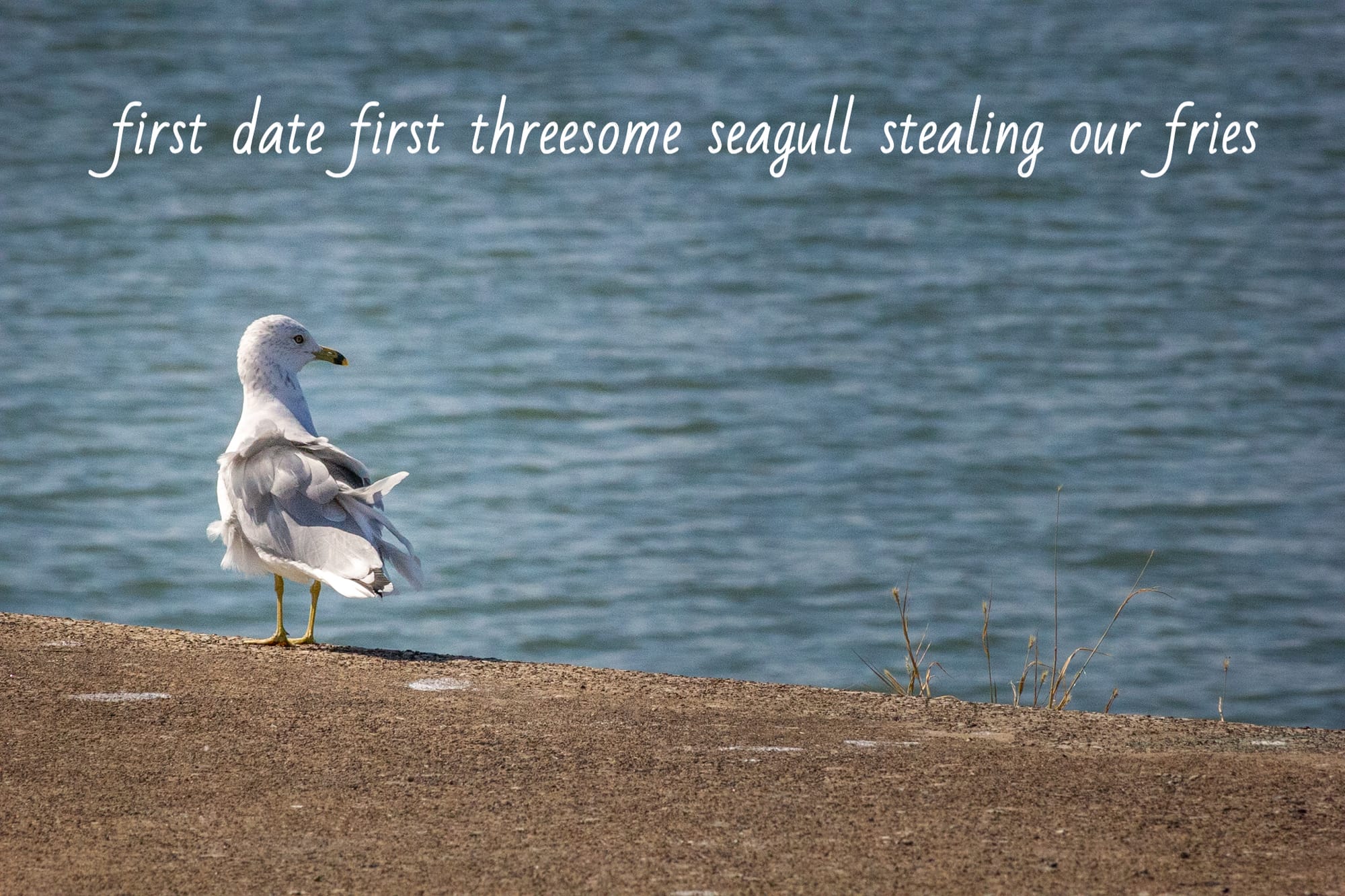9. Community

Each friend represents a world in us, a world possibly not born until they arrive, and it is only by this meeting that a new world is born. —Anaïs Nin
Around the world, there are just a few thousand poets publishing haiku in English. There is a popular notion that we’re separated from everyone else on Earth through a link of no more than six acquaintances. But within the haiku world, I suspect it’s no more than four degrees of connection.
When I open a journal, I have the pleasure of reading not just literature, but the works of acquaintances and friends. Haiku poets are a friendly bunch. I’ve sent more than a few cold emails to poets over the years to ask a question or seeking to connect, and often the response is so warm and kind. And the atmosphere of even large gatherings—like Haiku North America—feels more like a reunion of friends and neighbors than a conference.
Community is central to our work at confluence. From the journal’s inception, our hope has been to co-create containers for more and deeper connection within the haiku world. As part of experimenting with community, we’ve invited each poet fellow to collaborate with other fellows on joint work. In this month’s issue, we are pleased to present these collaborations. The poems reflect a kaleidoscopic diversity of form—haibun, sequences, tan renga, haiga, and meld-ku—and subject matter, from the ribald to the religious.
I hope you enjoy reading their work as much as the poets enjoyed putting it together. If the idea of collaboration sparks something in you, consider reaching out to another poet or two and invite them to write together. You may discover not only literary delights but also a beautiful connection with another human being.
Ryland Shengzhi Li, confluence co-editor
sequences
Carrying
skipping stones
I lose the rhythm
over a lily
as he stops breathing
the scent of jasmine
the weight of a name said out loud
a pencil moon
on the unfinished sheet
heart shaped cake
the toothpick comes out
clean
Lorraine A Padden
David Green
Photo Booth
dress coded
the salt-scarred planks
of the boardwalk
hands thrust
deeper into pockets
new fall line a trail of leaf cutter ants
skateboard wheels
stuttering on bentgrass
before the sun
gives it up
three-quarter view
David Green
Lorraine A Padden
Lucid
night terror
a feather falls
from the dreamcatcher
CC
loud footsteps
from the empty hallway
scent of leather
RBM
in my study
writing my will
the tabby stretches
DSC
Carissa Coane
Rowan Beckett Minor
Daniel Shank Cruz
tan renga
winter doldrums
my toenails snag
the bedsheet
black sand
in a beach dream
amid
the tangled stillness
snowflakes
blizzard warning
in an exhale
David Green
Lorraine A Padden
meld-ku
the quiet certainty of a blue hour new haircut
bare-faced the moon I long to be
Carissa Coane
Daniel Shank Cruz
Rowan Beckett Minor
* Meld-ku was created by Shloka Shankar in 2023. Inspired by Japanese short forms, each poem is untitled and consists of two collaboratively written monoku that link to and shift from each other. The uniqueness of meld-ku lies in the fact that it is almost as if the thought of one poet is completed by the other.
haiga

haibun
A Thorn in the Flesh
If my body is a temple for the Holy Spirit, then you can call this church abandoned.
spring fever showing all their tattoos
Daniel Shank Cruz
Rowan Beckett Minor
It is what it is
As a teenager, I sometimes wished my mother would leave me alone.
One day, she did.
fall...
not everything in life
is a lesson
How do you think people reacted when there was the first death on the earth?
What did they think happened to the person? Did they wait for the dead to wake up? When did they decide it was time to let go? Did they cremate or bury? How did they carry on when it dawned that the person is never going to come back? When did they realize that death will take everyone one day?
no advance notice
a sudden breeze blows
leaves off the pile
of fresh fruit on the ofrenda
river of heaven
on the tombstone
withered grass
I read two lines of your favourite poem.
Do not stand by my grave and cry;
I am not there, I did not die.
Where do you go from here?
What do you expect will happen next?
I ask this from you, but I know that subconsciously the question of “What happens after we die?” comes down to “What happens after I die?”
The great Bengali poet Rabindranath Tagore wrote,
The night kissed the fading day
With a whisper.
“I am death, your mother,
From me you will get new birth.”
trying the taste
of pomegranates
Vandana Parashar
Nicky Gutierrez
Thank you for reading. We invite you to continue the conversation by hitting the "comment" button below. Feel free to share your favorite poem or your reactions to the work. The poets and editors look forward to reading and responding to your comments.
If you liked the issue, we also welcome you to share this with others in your community. In our next issue we'll announce our upcoming poetry reading, featuring our poet Fellows as well as opportunities for you to respond and participate.

Member discussion